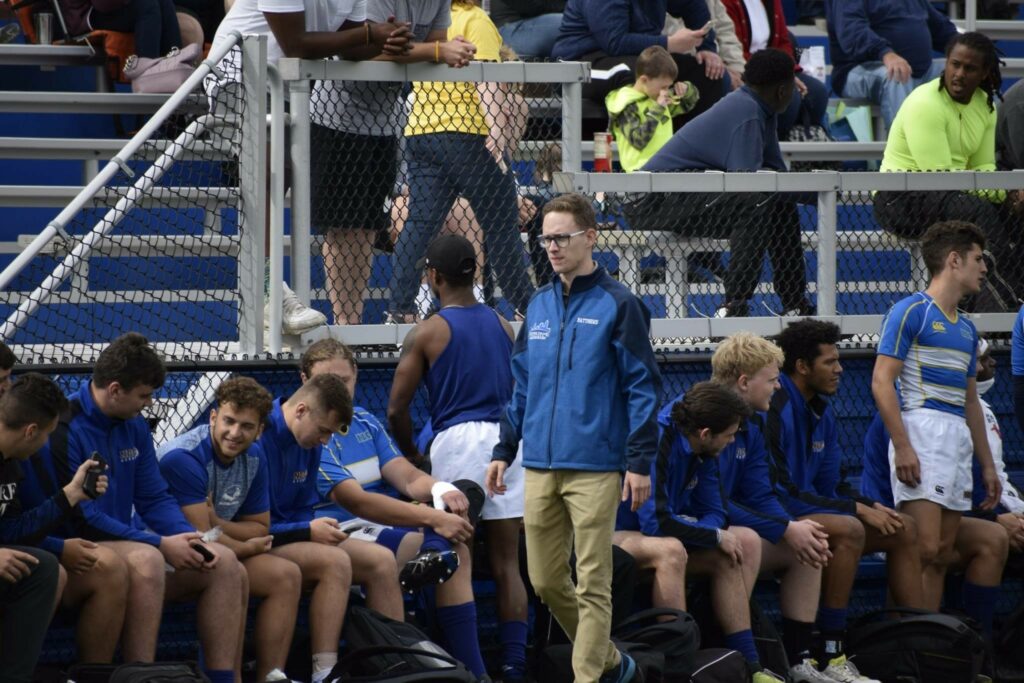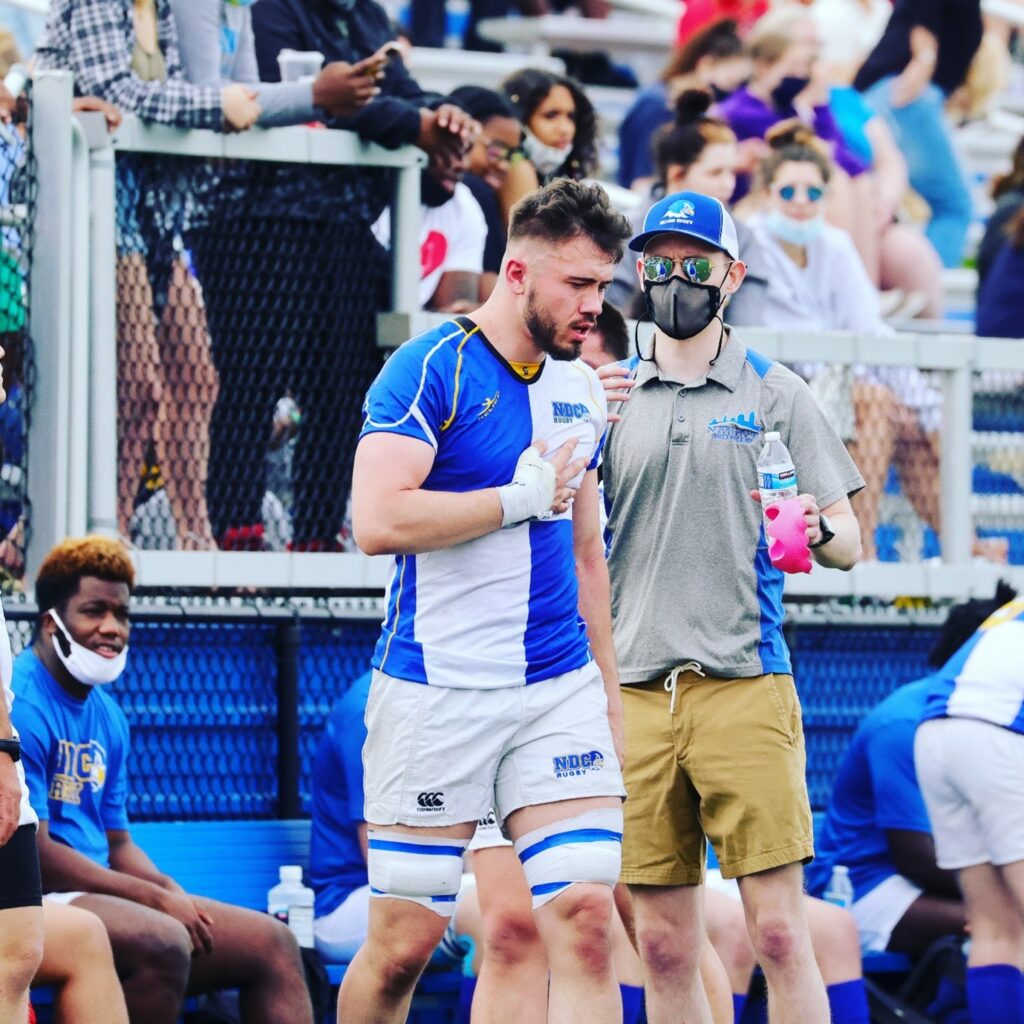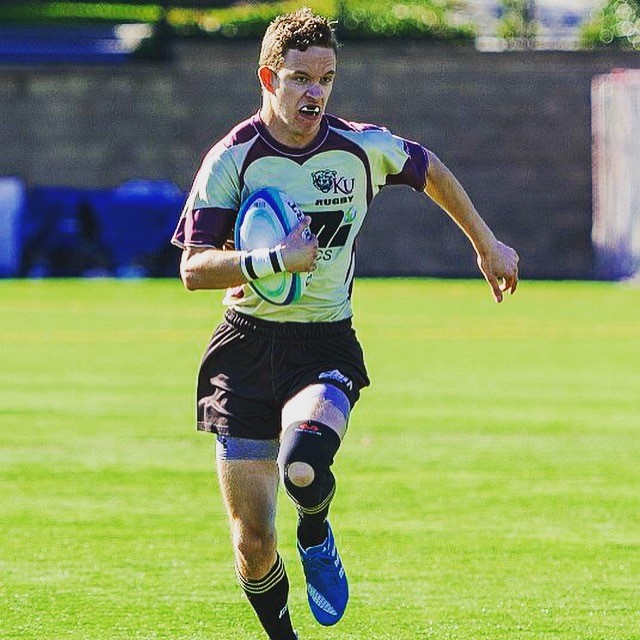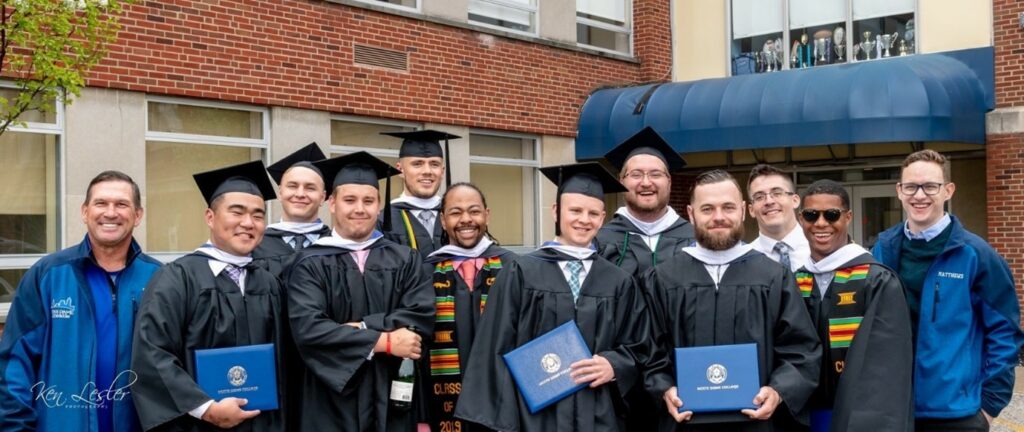
When you are scouting potential Elite Rugby Scholars, what features do you look for in a player that you feel would make them perfect to excel in collegiate rugby?
I believe if an individual is open to opportunities, there is the right place and level of rugby for everyone in US collegiate rugby.
Outside of the ability to make the financial commitment for any international student studying in the US, I am treasure hunting. I am looking for what potential Elite Rugby Scholars can contribute to a US rugby program.
Essentially what are you good at? These may be the more easily recognisable attributes such as physical athleticism or rugby ability, but may also be humility, coachability, and leadership that may be even more beneficial.
Ultimately, how curious is the individual? The more an individual is invested in the opportunities and the desire to keep learning and progressing, the further Elite Rugby Scholars and playing rugby and studying in the US can take you.
Given your extensive experience coaching in the United States, what are the main considerations Scholars should consider when they make the move across the pond such as the level of competitiveness, athleticism etc.
As I said previously, I firmly believe there is the right place and level of rugby for everyone in the US. However, I have been told many times that the level of athleticism and specifically how high the game’s physicality is surprising to many international student-athletes playing in the US.
When making a move across the pond, I believe the most important consideration is having the best possible understanding of the type of school, program, and level of rugby at the college or university you will be attending. The US collegiate rugby and higher education landscape is vast and can be confusing, even to Americans making their decisions.
ERS will help connect you to many colleges and universities and support you throughout the process, allowing you to get all your questions and the ones you hadn’t thought of answered. These can be details about the institution, such as the size of the campus, where it is located, classroom sizes, degrees offered, available housing options, and more. As well as information about the rugby, such as what division and league the team compete in, where does it fit into the athletic department (from varsity/fully funded to club/no funding), how far will you be travelling for matches, and is the conference and regularly scheduled rugby matches for the program competitive.
Possibly the most critical question about the rugby may be where you fit into the depth chart. While things can always change, it can be helpful to understand how many people you may be competing against for your desired place in the team. Specific programs may have larger squad sizes where not everyone is guaranteed playing time and high competition for positions. In contrast, others may be smaller squad sizes or multiple teams that allow greater opportunity to gain playing time.
While there are no right or wrong answers to the questions, hopefully, throughout the process of working with ERS and making your decision, you will start to figure out what you want and don’t want in the institution and rugby program. There is never a bad question. As a coach and recruiter, I valued individuals looking to gain as much information as possible, showing they were invested in the opportunity and what was best for them.

How does collegiate rugby differ technically to international rugby?
US collegiate rugby does differ technically to international rugby. In many situations, American players are not introduced to the sport as early as many international athletes, meaning their knowledge of the game may not be as high. This can cause a change in the approach to the game, system, plays, and potentially coaching approach. Often American players may not have the same understanding of the game’s nuances, and the ability to make the best decisions may be slightly different. While this may not always be the case, I believe it is important to be aware of some possible differences and the level of detail you may be used to playing under.
Considering the exponential growth in popularity of collegiate rugby, how would you say college rugby has evolved over the years? What does the future of college rugby look like to you?
US collegiate rugby has grown massively in the last few years, and I believe it will continue to grow on the same rapid trajectory for years to come. This is down to many reasons, and there are many opportunities that rugby in the US still has available to tap into. In the past few years, I have seen more and more professionally run leagues, competitions, and tournaments, which have helped further legitimise US collegiate rugby.
The growth of the MLR has certainly further assisted, and many competitive programs are feeding players into the professional league to great success. From my experience recruiting players to a US college, I have seen many schools realising the value of what a well-funded rugby program can provide to the institution.
This results in the rapid growth of new and well-funded or increased funding to current programs across the country. Many of these programs are seeing good levels of success very quickly. This also means the recruitment of strong rugby players is getting increasingly competitive, and the level of competition at the collegiate level is further increasing.
In the future, I believe we will see the US colligate rugby continue to grow and gain further legitimacy, which will help increase the sport outside of the non-traditional rugby base. In often cases, colligate sports programs in the US are better supported than some of the professional programs, and I think US collegiate rugby will be able to pull some of these fans into the sport.
The increase in the number of competitive programs, level of funding, and better organisation of the leagues and competition structures will continue. The incredible growth that US collegiate rugby has and will continue to see will benefit all players involved.

For many moving to North America can be a daunting experience, what would you say to anyone that may feel anxious about taking the leap to become an Elite Rugby Scholar?
ERS supports you through the whole process to ease nerves at any step. I will continue to say that there is the right place and fit for every Elite Rugby Scholar at an institution in the US. The connection with a multitude of colleges and universities that ERS will provide will allow all the information you need to be gained.
You will likely have a variety of conversations with coaches before making any decisions and will likely know the coach of the program and institution you chose well.
Many schools are also willing to connect you with an international student who has previously been in your shoes, allowing you to gain another perspective and resource to answer questions. Those two people will provide friendly faces when you arrive on campus, along with the 30+ other friends and help you gain from the team’s players.
Most importantly, ERS will always be on your side. The person we are working for is you, and our desire is what is best for you. We gain nothing from anyone else by swaying your decision, so we can provide the impartial support and information you need. Many coaches and recruiters will also want what is best for you, but they do have a job to do and biases at the end of the day.
What were your favourite aspects of living in America?
The opportunities America can provide were my favourite aspect of living in America. You can hop on a flight or a short drive and be in many different places. If you want big cities, the beach, a ski resort, the desert, a place to go camping or backpacking, hot or cold weather, you have it all available. Especially during your time at college or university, you have the opportunity to meet so many different types of people, and you never know whom you will meet and what adventures are to come.

Is there anything you wish you knew before you moved from the UK to America?
I don’t think there is anything, in particular, I wish I had known before I moved from the UK to America. I believe an exciting part of the opportunity and adventure is experiencing something new and learning about a new culture and people.

Interested in becoming an Elite Rugby Scholar? Please do not hesitate to send an enquiry


